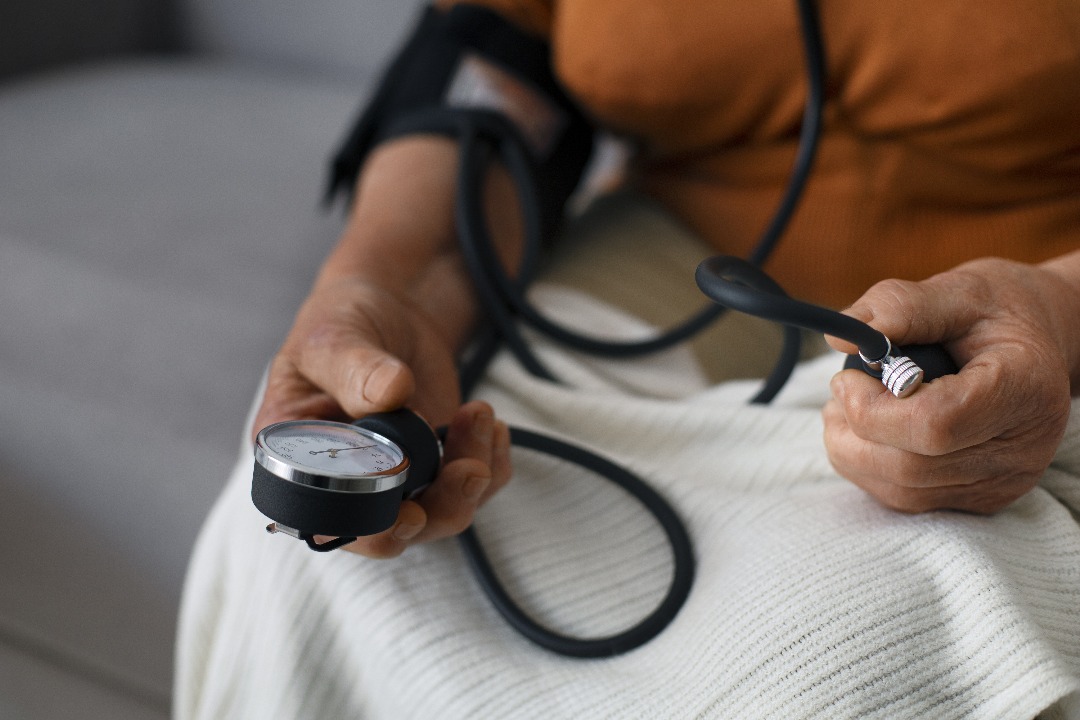Understanding Hypertension: Causes and Effects
Hypertension, commonly known as high blood pressure, is often called the “silent killer” because it usually develops without noticeable symptoms but can lead to serious health complications if left untreated. In today’s fast-paced world, hypertension has become one of the most common chronic health conditions, affecting millions of people globally — including many in Nigeria. At Tranquil and Quest Specialist Hospital (TQSH), we believe that awareness is the first step toward prevention and better management.

What Is Hypertension?
Hypertension occurs when the force of blood against the artery walls remains consistently too high. Blood pressure is measured in millimeters of mercury (mmHg) and recorded as two numbers:
- Systolic pressure (upper number): The pressure when your heart beats.
- Diastolic pressure (lower number): The pressure when your heart rests between beats.
A normal reading is typically around 120/80 mmHg, while hypertension is diagnosed when readings consistently stay above 140/90 mmHg.
Common Causes of Hypertension
There isn’t always a single cause of high blood pressure, but several factors can increase your risk:
Unhealthy Diet: High salt (sodium) intake, excessive processed foods, and low fruit and vegetable consumption can raise blood pressure.
Lack of Physical Activity: Sedentary lifestyles make it harder for your heart to stay strong and efficient.
Obesity or Overweight: Carrying extra weight puts more strain on your heart and arteries.
Stress: Chronic stress may lead to temporary spikes in blood pressure that, over time, become sustained.
Excessive Alcohol and Tobacco Use: Both contribute to the stiffening of blood vessels and can elevate blood pressure.
Genetics and Family History: A family history of hypertension increases your likelihood of developing it.
Age: The risk of hypertension increases as you grow older.
Effects of Hypertension on the Body
Uncontrolled hypertension can silently damage vital organs over time. Major complications include:
- Heart Disease: High blood pressure forces your heart to work harder, leading to heart failure, coronary artery disease, or heart attack.
- Stroke: It can weaken or block blood vessels in the brain, increasing stroke risk.
- Kidney Damage: Hypertension can impair the kidneys’ ability to filter waste effectively.
- Vision Problems: Damage to blood vessels in the eyes (hypertensive retinopathy) can lead to vision loss.
- Cognitive Decline: Chronic high blood pressure may affect memory and increase the risk of dementia.
Recognizing the Warning Signs
While hypertension often has no visible symptoms, some people may experience:
- Persistent headaches
- Shortness of breath
- Nosebleeds
- Fatigue or dizziness
If these symptoms occur frequently, it’s important to get your blood pressure checked by a healthcare professional.
Prevention and Management
You can take practical steps to lower your risk or manage hypertension effectively:
Monitor Your Blood Pressure Regularly – Routine checks help detect issues early.
Eat a Balanced Diet – Reduce salt intake and include more fruits, vegetables, and whole grains.
Exercise Regularly – Aim for at least 30 minutes of moderate activity daily.
Maintain a Healthy Weight – Even small weight losses can have big effects on blood pressure.
Reduce Stress – Practice relaxation techniques such as meditation or yoga.
Avoid Tobacco and Limit Alcohol – Both contribute significantly to high blood pressure.
Follow Your Doctor’s Advice – Take prescribed medications as directed and attend regular checkups.
Conclusion
Hypertension is preventable, manageable, and treatable — but only if it’s detected early and addressed proactively. At Tranquil and Quest Specialist Hospital (TQSH), our cardiovascular specialists provide comprehensive screening, diagnosis, and management plans tailored to your needs.
Your heart health matters. Take charge today — book a blood pressure check and consultation with our specialists at TQSH.






